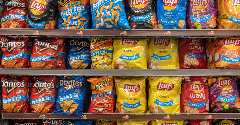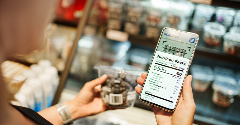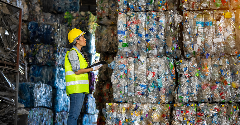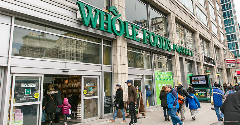News
Alcohol companies combat COVID 19 hand sanitizer shortages
2 Apr 2020Amid shortages of the topical disinfectant, both local and international distilleries in the United States are repurposing high-proof ethanol alcohol as branded hand sanitizers and donating it to those in need.
Earlier this month, The Alcohol and Tobacco Tax and Trade Bureau waived portions of the U.S. internal revenue law to permit ethanol-based sanitizer production. Likewise, the Food and Drug Administration (FDA) issued a temporary policy that permits pharmacists and compounders to produce alcohol-based hand sanitizers for the duration of the COVID-19 health emergency. While the intent is to supplement commercial producers that are unable to keep a sufficient supply on shelves, not just any formulation is acceptable. The FDA is strictly regulating the recipe. Hand sanitizer, according to the governmental agency, must contain ethanol alcohol at 80%, glycerol, hydrogen peroxide and sterile water.

To kill germs effectively, the Centers for Disease and Control Prevention specifies that alcohol-based hand sanitizers must have an alcohol concentration between 60-95%.
Distilleries, including Pernod Ricard, Diageo and Anheuser-Busch are now taking part in hand sanitizer production efforts and donating the product to charities, non-profits and medical professionals help fight COVID-19.
"In times like this it is important that everyone, especially companies with strong U.S. roots, like ours, prioritize good corporate citizenship and step up in the name of the greater good. I am glad that we were able to form this public/private partnership and repurpose our spirits production facilities to meet a pressing, national need," said Ann Mukherjee, Chairman and CEO, Pernod Ricard North America in a release. Pernod Ricard makes Absolut Vodka and Jameson Whiskey.
Drink makers are already in possession of vast quantities of ethanol as it is the basic ingredient required to make liquor, and with the manufacturing capacity of these international distilleries focused on producing the gel disinfectant, these companies are reportedly churning out tens of thousands of liters of hand sanitizer.
This push for distillery-produced hand sanitizer is partially in response to the FDA working to curtail the production of homemade sanitizer, which can be detrimental to one’s health. “ (The) FDA recommends that consumers do not make their own hand sanitizer. If made incorrectly, hand sanitizer can be ineffective, and there have been reports of skin burns from homemade hand sanitizer,” according to the agency’s website.
Providing this ethanol-based disinfectant is also a strategy for alcohol companies to stay top of mind with consumers. Well-known alcohol brands have taken a financial hit as bars, restaurants and hotels have closed worldwide. The French spirits maker, Pernod Ricard cut its fiscal guidance for 2020 by 20%. By passing out branded hand sanitizer, the company remains an integral part of the lives of thousands in a novel way that may lead to future sales from grateful hand sanitizer users.
Related news

PepsiCo formulates ‘naked’ Cheetos and Doritos products
31 Dec 2025
US food giant PepsiCo has launched its Simply NKD range, a move it says reimagines its popular products with new formulations free from artificial flavours, dyes, and colours.
Read more
Debate over ban on ‘meaty’ names for plant-based products reaches stalemate
26 Dec 2025
The debate over a ban on plant-based products using “meaty” terms has reached a stalemate, leaving manufacturers in limbo and still facing overhauls to their marketing and packaging.
Read more
Has ‘clean’ had its day?
22 Dec 2025
Wielding clean-label positioning and fortification as marketing levers is a dangerous strategy, and brands would be better off explaining the hows and whys of the ingredients in their products, say experts.
Read more
Pioneers of circular plastic packaging push for new policies
18 Dec 2025
Some of the world’s largest food and drink companies have grown frustrated at investing in circular packaging systems, as the majority “wait on the sidelines”.
Read more
Whole Foods Market forecasts fibre frenzy for 2026
11 Dec 2025
Whole Foods Market has released its top 2026 trends, predicting that a fibre frenzy will take place next year as health-conscious consumers seek out nutritious, filling options.
Read more
Sorghum emerges as better-for-you hero ingredient
9 Dec 2025
With the launch of Novak Djokovic’s sorghum-based brand, the grain’s popularity in the better-for-you snacking sphere is on the rise, thanks to its nutritional and sensory properties.
Read more
Innovation promise in 'maturing' plant-based dairy alternatives market
8 Dec 2025
Plant-based dairy is a maturing market that still faces significant hurdles around taste, functionality, nutrition, and price, but industry is innovating fast, according to experts speaking at Fi Europe.
Read more
Turning global trade challenges into opportunities
4 Dec 2025
While our food innovation ecosystem is in a healthy place, certain barriers persist. A panel of experts at Fi Europe shared their ideas and strategies for overcoming these, to fully unleash Europe’s potential.
Read more
Celebrating the winners of the Fi Europe Innovation Awards 2025
3 Dec 2025
Food industry stakeholders celebrated as the winners of the Fi Europe Innovation Awards were announced at a ceremony in Paris.
Read more
Yuka’s food scanning app helps consumers make healthier choices
2 Dec 2025
Global food scanning app Yuka helps consumers understand the content of their shopping baskets and shapes producers’ reformulation plans.
Read more